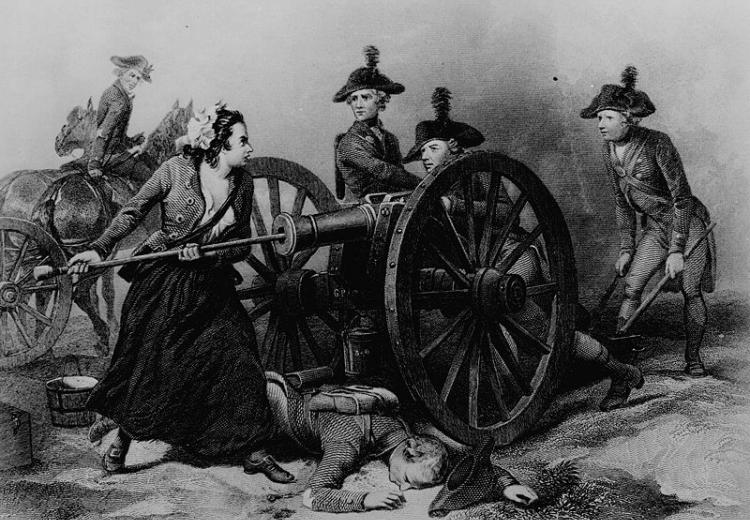Voices of the American Revolution

"Molly Pitcher" at the Battle of Monmouth.
In the years preceding the Declaration of Independence on July 4, 1776, many American colonists expressed opposition to Great Britain's policies toward the colonies, but few thought seriously about establishing an independent nation until late in the imperial crisis. Throughout the years of controversy beginning in the 1760s, Americans expressed a variety of opinions about the legitimacy of open acts of resistance and rebellion, which intensified as armed resistance began in April 1775. On both sides of the issue, perspectives and motivations were diverse. Among those who favored resistance, for example, not all would go so far as to advocate full-scale rebellion against Great Britain or national independence for the United States. The debate, moreover, was not a static one, and its terms shifted over time; by 1776 many colonists found themselves advocating positions undreamed of a decade earlier.
In this lesson, students are taught how to make informed analyses of primary documents illustrating the diversity of religious, political, social, and economic motives behind competing perspectives on questions of independence and rebellion. Making use of a variety of primary texts, the activities below help students to "hear" some of the colonial voices that, in the course of time and under the pressure of novel ideas and events, contributed to the American Revolution.
Guiding Questions
Why were colonists willing to go to war?
Who was "Molly Pitcher"?
What did individuals and groups gain and lose by joining the American Revolution?
Learning Objectives
Examine varying reasons for why individuals chose to rebel or remain loyal.
Analyze documents to determine point of view analysis and use evidence for or against rebellion to inform your position on the compelling questions.
Evaluate the decision by a person or group to take a particular side during the American Revolution.
